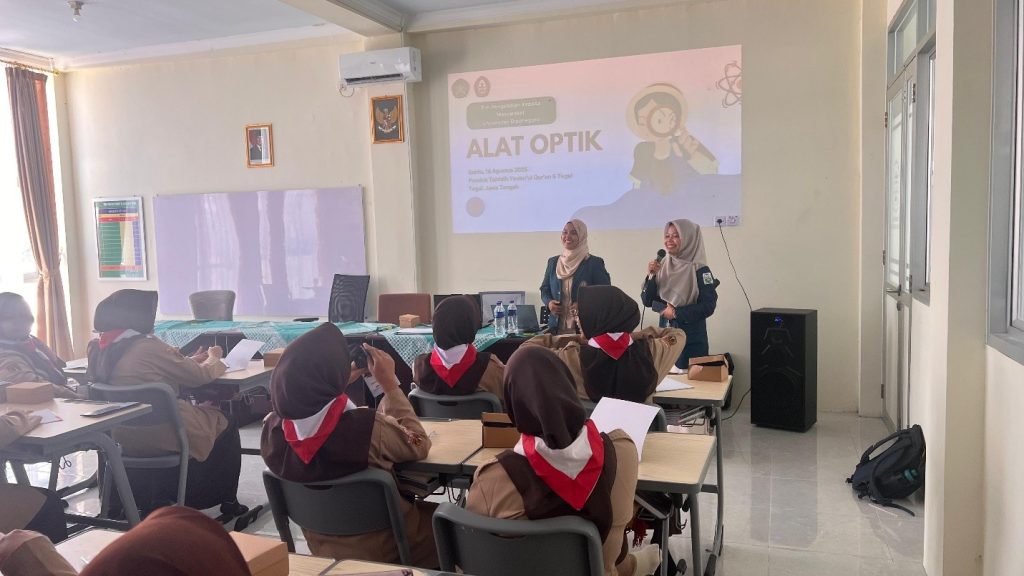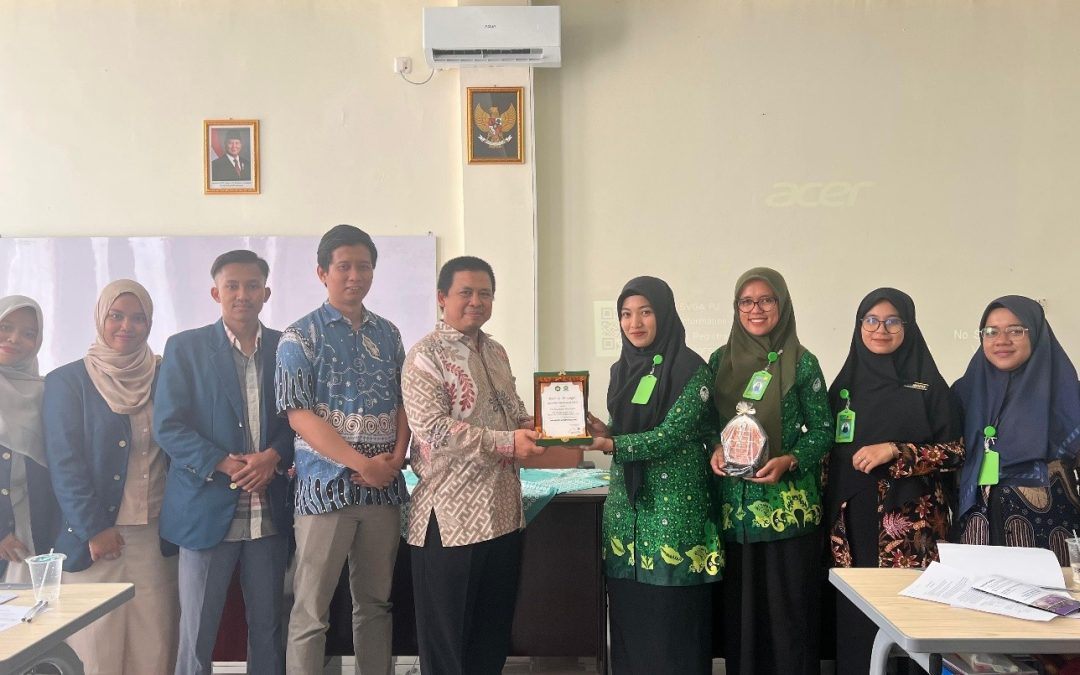Tegal, 16 August 2025 – The Department of Physics at Diponegoro University (UNDIP) once again conducted a Community Service (PKM) program themed “Introduction to Optics and Digital Physics Applications through an Interactive Practicum.” The event took place at SMA Tahfidz Yanbu’ul Qur’an 5 Tegal, Central Java, and was attended enthusiastically by around 30 students (santri).
The program opened with remarks from the activity supervisors, Dhani Nur Indra Syamputra, S.Si., M.Sc., and Zaenul Muhlisin, S.Si., M.Si., F.Med., as well as a school representative, Mr. Amir. The community service team then introduced Diponegoro University—particularly the Department of Physics—along with educational prospects and career opportunities. This introductory session was designed to motivate participants to pursue higher education.

At the core of the program, participants received an interactive introduction to the properties of light and optical instruments. The practicum used toy lasers, positive and negative lenses, a screen, and stands. Students directly observed how the direction of light changes after passing through various lens combinations. The atmosphere became even livelier during the Q&A session, with door prizes and snacks for active participants.
Next, participants were trained to use the smartphone-based Phyphox application. Through this app, they conducted simple experiments to measure the coefficient of restitution of a ping-pong ball and a bekel ball (jacks ball) using the sound sensor (acoustic stopwatch). This practicum not only introduced the concept of collisions in physics but also familiarized students with using digital technology for learning.

Towards the end of the event, an interactive quiz was held to assess participants’ understanding, followed by a symbolic exchange of a commemorative plaque between UNDIP and the school. The program concluded with a group photo as a memento of the collaboration between UNDIP and SMA Tahfidz Yanbu’ul Qur’an 5 Tegal.
According to the organizing team, the activity successfully fostered curiosity and enthusiasm for learning. Participants not only grasped optics concepts in theory but also gained hands-on experience in an enjoyable way.

“Through this activity, we want to show that physics can be learned in a fun, interactive way that is relevant to technological developments. We hope more young people will be motivated to continue their studies in UNDIP Physics,” one team member remarked.

